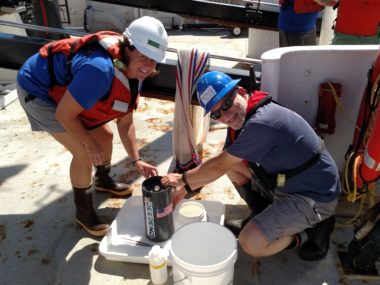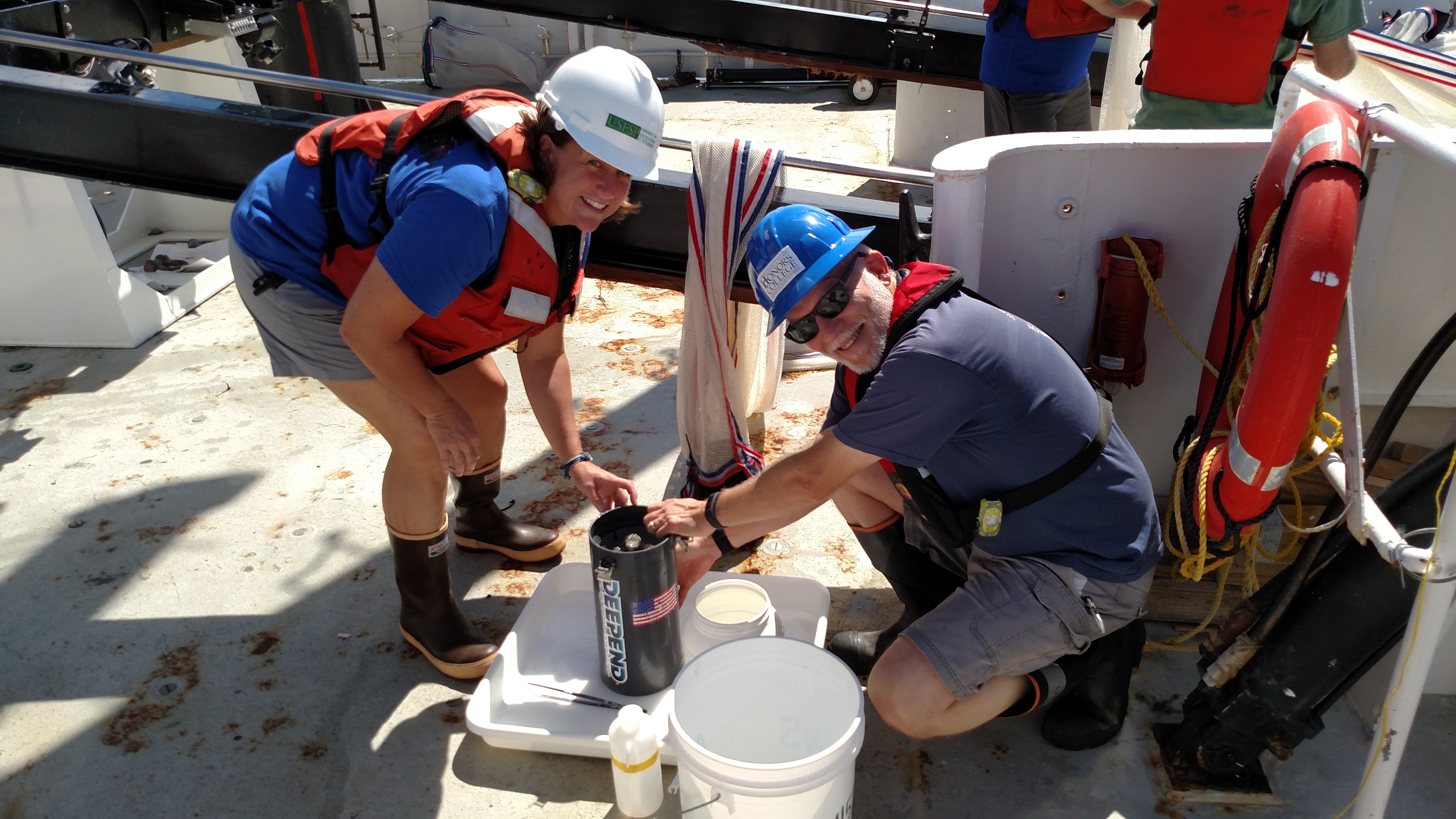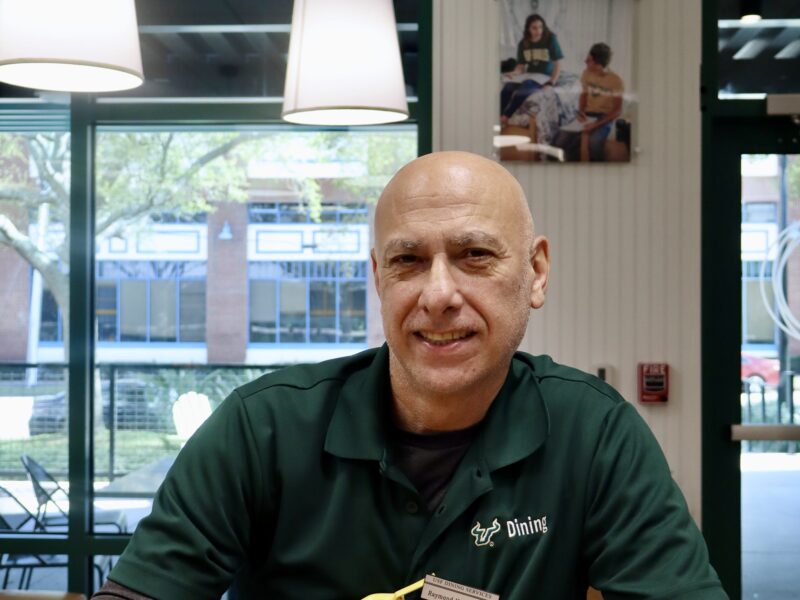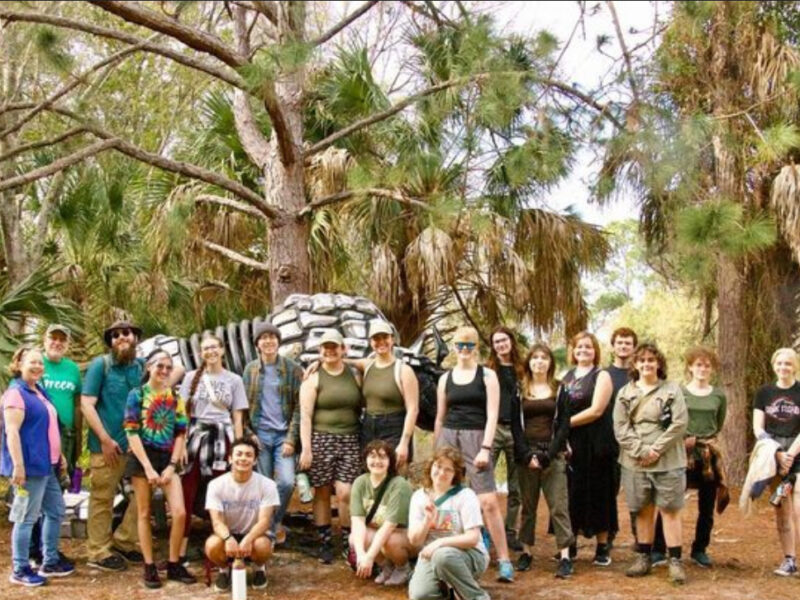In 2010, a British Petroleum (BP) oil rig exploded after a wellhead blowout, causing the worst oil spill in history. The U.S. government estimates that 4.9 million barrels of oil were dumped into the Gulf of Mexico. It took over five months to cap the spill, and recovery efforts have been slow to fix the damage.

Dr. Heather Judkins, an assistant professor of biology at USF St. Petersburg, spent her summer in the northern Gulf of Mexico studying the effects of the spill. She and other researchers worked as a part of The Deep Pelagic Nekton Dynamics Consortium, DEEPEND for short.
“The study is all post-oil spill work,” Judkins said. “The overall goal is to assess the mid-water column in terms of biodiversity, genetic makeup, trophic-level interactions, and contaminants.”
This means that Judkins and the other members of DEEPEND investigated the damage and recovery in the Gulf. DEEPEND received a research grant from the Gulf of Mexico Research Initiative (GoMRI) for three years of sampling and analysis, starting in 2015.
Members of the project studied animals, microorganisms and the environment to see if and how the oil spill harmed them.
Judkins specifically researched “the evolution, ecology, and biogeography of cephalopods.” These are a type of mollusk characterized by their prominent heads and tentacles, such as squids and octopods.
This past summer, while on another cruise in the Gulf, Judkins studied cephalopods along with 14 other scientists from various American universities. She also researches them at her lab, the Judkins Invertebrate Lab.
She fell in love with marine biology at a young age. Growing up near the ocean, Judkins knew she wanted to work in the environment that she played in all of her life.
“I was maybe 6 years old, and my grandparents took me to the Miami Seaquarium,” said Judkins. “I fell in love with the dolphins and the dolphin show.”
“I knew moving through school I’d do something ocean-related.”
Judkins, who received her doctorate in biological oceanography from the USF College of Marine Science, said that while working on her doctorate the idea to research cephalopods came up from a colleague.
“I am the cephalopod researcher,” Judkins said. “I identify the organisms on the ship. We have different projects the animals will be used for. All of the animals get on board and we divvy them out to be studied.”
When she’s not out at sea or analyzing her findings, Judkins is aiding students in undergraduate and graduate research, as well as biology-related internships.
“Half of my job is research, the other half is teaching,” Judkins said.
“(The project) will take many years to complete, but it all directly relates back to the classroom through discussion and animals. It brings in dollars to USFSP through grant funding.”
In addition to teaching at USFSP, Judkins also serves as the education outreach coordinator for DEEPEND. In doing so, she collaborates with a team of five others to work with students of all levels.
A member of her team is her research assistant and graduate student, Kris Clark. Clark received her bachelor’s degree in biology from USFSP and is working towards her master’s degree in biological oceanography at the USF College of Marine Science in Tampa. Her role as a research assistant to Dr. Judkins focuses on the identification of cephalopods.
“She is a research assistant, but she is pretty much a lab manager,” Judkins said of Clark.
“Teachers can take that education and inspire students to become marine scientists,” Clark said.
With a couple more cruises into the Gulf to go, the DEEPEND Consortium and Dr. Judkins’ team is far from done with their research. The next cruise date has not been determined yet, but will vary with the seasons.
In the future, Judkins said she would like to “continue to write grant proposals and to continue funding for cephalopod related projects.”
“Any time I can get into the ocean to explore is amazing.”
For more information regarding the DEEPEND Consortium, visit http://www.deependconsortium.org/ or http://www.usfsp.edu/judkins-lab/.



